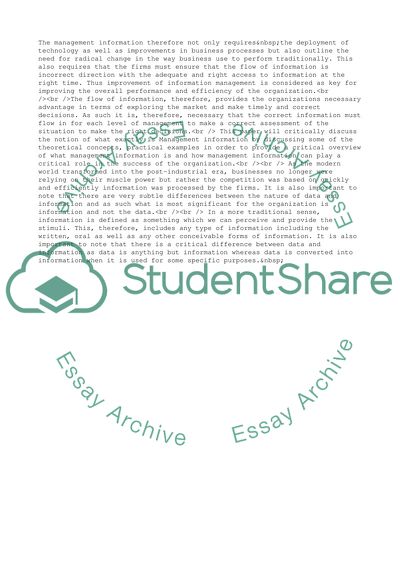Cite this document
(What is Management Information Term Paper Example | Topics and Well Written Essays - 2000 words, n.d.)
What is Management Information Term Paper Example | Topics and Well Written Essays - 2000 words. Retrieved from https://studentshare.org/management/1736745-what-is-management-information
What is Management Information Term Paper Example | Topics and Well Written Essays - 2000 words. Retrieved from https://studentshare.org/management/1736745-what-is-management-information
(What Is Management Information Term Paper Example | Topics and Well Written Essays - 2000 Words)
What Is Management Information Term Paper Example | Topics and Well Written Essays - 2000 Words. https://studentshare.org/management/1736745-what-is-management-information.
What Is Management Information Term Paper Example | Topics and Well Written Essays - 2000 Words. https://studentshare.org/management/1736745-what-is-management-information.
“What Is Management Information Term Paper Example | Topics and Well Written Essays - 2000 Words”. https://studentshare.org/management/1736745-what-is-management-information.


